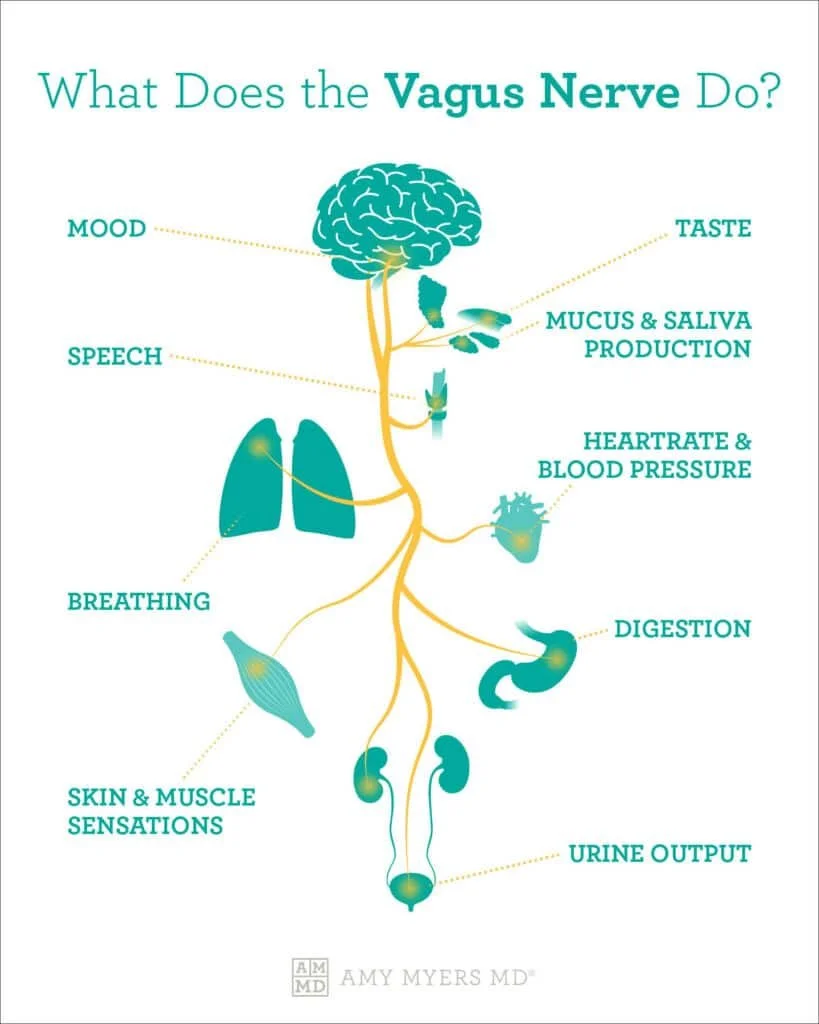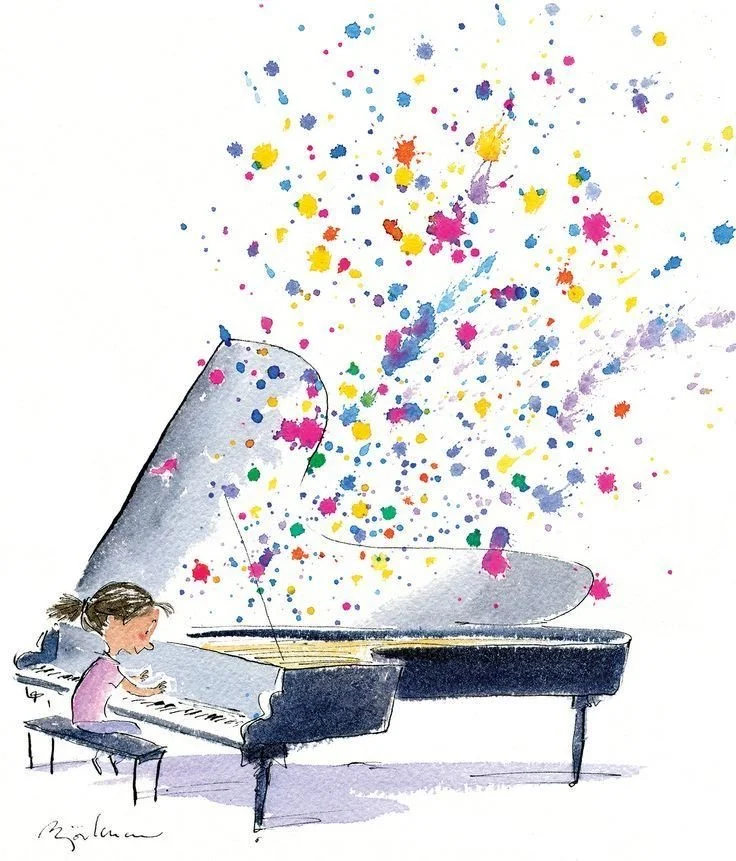The Intersection of Music, Sound and Healing
Music’s Effects on the Brain and our Wellbeing
Being a pianist and singer myself, I’ve always been particularly fascinated by music’s effect on my mood. I’ve noticed playing can help me process my emotions and get back into my body. One of my favorite activities is curating a playlist of all the songs that are particularly poignant during a season of my life and matching the tones, sounds and lyrics with my emotional landscape. Lately, I’ve been more curious about how intentionally focusing on music could affect our lives in positive ways. As defined by composer Edgard Varese, “music is organized sound.” As humans, we are naturally drawn to music and pleasant soundscapes, but how does music actually impact our health? According to research, it does so in profound ways!
Sound Healing:
“The human body is wired to be exquisitely sensitive to sound,” Eileen Day McKusick, Tuning the Human Biofield. We are affected and soothed by sound from the moment we hear our mother’s heartbeat in the womb. The sounds of bird songs actually signal safety to our brains. (In nature, birds are more likely to sing during the day in the absence of predators or threat, suggesting a safe environment. As humans, we have picked up on this correlation and now associate the sound with reassurance)
“There’s no organ system in the body that’s not affected by sound and music and vibration,” Mitchell Gaynor, M.D., Sounds of Healing. As humans, we resonate with certain frequencies as there is a biological drive to attune with the frequencies of nature, which are coherent. (Have you ever seen videos on mushrooms making music?) “A coherent frequency is one that is ordered, consistent, clear, and in phase. In phase means ‘operating at the same frequency or wavelength.’ An incoherent frequency is disordered, inconsistent, not clear, and out of phase (we all know people who are coherent vs. incoherent),” Eileen Day McKusick
We also emit our own frequencies. “Research at the Institute of HeartMath has found that the heart produces either coherent or incoherent frequency patterns based on the emotions a person is feeling.” Our frequencies are influenced by and can become entrained (the process of two systems synchronizing with one another) with the frequencies emitted around us, whether harmonious or dissonant. See the concept of entrainment in action here with these tuning forks. This is all to suggest that sound and music can indeed alter our own body’s, chemistry, and mood in measurable (and remarkable!) ways.
Sound and our Autonomic Nervous Systems:
Deb Dana, known for her work in polyvagal theory and her research in the field of trauma and the nervous system, has written on the correlation between sound and our feelings of connectivity and safety, especially the sound of vocal tones. “The Social Engagement System,” which is largely influenced by the vagus nerve (the longest running nerve in our bodies which stretches from our brains, down to our reproductive organs), is crucial for helping us feel safe and calm.
She asserts that certain sounds, especially those from other humans’ voices, help activate The Social Engagement System, moving us from the sympathetic to the parasympathetic branches of our nervous systems, inducing those feelings of calm, and also regulating much of our autonomic bodily functioning. Calm and steady vocal tones can signal safety, social connection and support. Dana also suggests that dissonant, harsh, or jarring sounds, unpleasantly loud sounds, or actually also sometimes the absence of sound, (silence), can pull us out of The Social Engagement System and work against our sense of calm and safety.
Singing can actually increase our emotional resilience. Singing is known to “tone” the vagus nerve. When the vagus nerve is more toned, it strengthens our ability to move from the sympathetic to parasympathetic branches of our nervous systems and access the feeling of calm and safety in the world more readily and easily.
Our Musical Identity:
I think the question, “do you have good taste in music?” is kind of funny, as this will be highly subjective for all of us! What type of music you’re drawn to will be unique to you, and inform your sense of authenticity and differentiation, which is part of the beautiful process of coming into your sense of self and autonomy in this lifetime. “What may be annoying, unorganized, environmental noise to a person raised in culture A at time point A might be rapturous, organized, beautiful music to a person raised in culture B at time point B,” John Medina, Brain Rules. While it’s true that certain music can be considered more calming in general based on things like slower tempo and predictable harmonies, we all have unique genres and tastes that will appeal each of us best. Luckily all expressions of music have a place in their benefits on our health and wellbeing. The ones that will be most effective for us will be the ones that are most resonant for us. Also, slow music and fast music have equal possibility of reducing stress depending on the person or context. I, for instance, love jazz. My sister on the other hand has been particularly drawn to upbeat, dance-centered, house music in recent years. Even though her shows are not my cup of tea, she reports feeling acceptance, love, community and connection! And though she’s less likely to opt for a jazz bar, I feel intimate, safe, warm and cozy listening to music in those settings.
Music and Mood:
Apparently, my anecdotal evidence that music has such a positive impact on my mood is backed by science. And it seems others have the same tendencies as me… according to studies, when we are more stressed, we tend to listen to music more often. And this would make sense because music can actually reduce cortisol and other stress hormones in our bodies and help us to more quickly recover from stressful events. “Researchers have discovered that when people sing as a group, as they would in a choir, oxytocin courses through their brains. An uptick in the hormone is a fairly reliable indicator of feelings of trust, love, and acceptance.” Check out Jacob Collier conducting his audience as a chorus at his concerts (I have experienced profound wonder and connectivity myself, first-hand, attending one of his concerts live and joining in on this!) And see him doing this with Chris Martin from Coldplay here.
Oxytocin is also produced when people play music together in any capacity, like in a band or a duet, or listening in group settings like concerts. “These data suggest a mechanism whereby music makes people happy, calms them down, maybe even makes them feel close to each other,” John Medina. Oxytocin isn’t the only feel-good hormone produced through music. “Listening to music activates reward and pleasure circuits, modulating production of dopamine.” This is why music can feel so emotionally moving and why the climax of a concerto or resolution of a chord progression can feel so satisfying. Because of mirror neurons in the brain, music can also mirror emotional states and our brains actually interpret music through the lens of our emotional states.
“I feel the emotion that life conjures up and the songs I write get me closer to my feelings and realizing who I am. It's a natural process.”
-Taylor Swift
Music can Benefit Brain Function:
“Music appears to activate nearly every region of the brain that has so far been mapped, not just a single ‘music center,’” Daniel J. Levitin, Music and Mind: Harnessing the Arts for Health and Wellness Music is one of the only known activities to activate such wide reaching and interconnected brain activity, promoting more connectivity and strengthening brain flexibility.
Musicians have better memory and are better listeners. Studying, playing, or listening gives us great benefits, but playing music can shape brain development and increase neuroplasticity (our brains ability to change). Musicians in particular engage in high levels of executive functioning while improvising or composing. While creating original music, there is a high degree of brain activity in the pre-frontal cortex and temporal lobe. This is the part of the brain involved in abstract thinking and generating novel ideas. Also, the “flow state” is often achieved during this kind of musical creation and related to optimal brain function.
🎶⭐️ Watch Emmet Cohen (an insanely good modern day jazz pianist!) get into his own flow state during this improvised solo. Also see how he connects with his band members in this creative collaboration.
🎶⭐️ See John Mayer, another of my favorite musicians, in studio, improvising.
🎶⭐️ And if you’d like a REALLY cool example, this is little longer watch, but well worth it in my opinion! See the process of a jazz band listening to Nirvana for the first time and using just their ears, creating a unique, original jazz cover with improvised solos within minutes, here.
Music can Increase IQ and EQ (Emotional Intelligence):
“Musician students tend to do better than their nonmusician peers in reading, measures of overall intelligence, and academic achievement. Musicians are also able to focus attention better while avoiding distractions,” John Medina.
AND musicians are better at detecting emotion. Music improves social skills, and even increases empathy. Musicians are better able to decode emotional information in their social surroundings, imitate (resonate) with facial expressions of peers and respond more empathetically to the situations of those around them. Musicians can also process emotional cues in others’ voices better than nonmusicians
Because humming, toning and listening to music can increase emotional safety, developing and deepening our relationship with music can also help us to recover from chronic pain (a state that is usually de-void of or seriously lacking embodied safety), and develop more intimacy and acceptance with ourselves and our bodies.
Phew, I just barely touched on all the magical and wonderful benefits of music in this post, but there it is! And if you’d like more support in your own life beyond just the beautiful healing benefits of music, I offer 1 on 1 NeuroEmotional coaching sessions where I help you feel even safer in the world, and thereby more naturally in tune with your creativity, your ability to access curiosity and awe more readily, and your capacity to move through your life with more purpose and ease.







